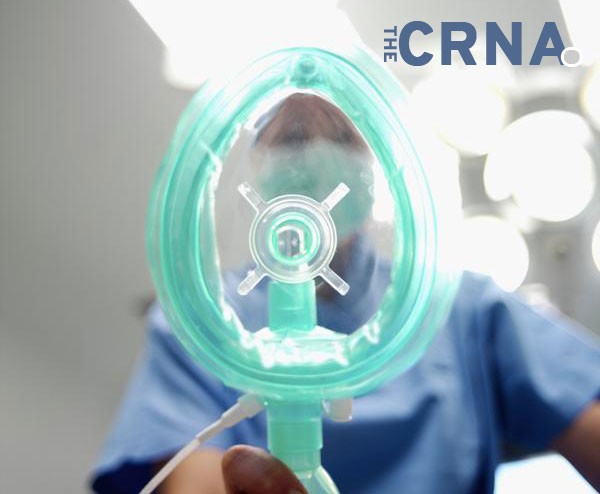DNAP vs DNP: Understanding The Difference

Since the AACN (American Association of Colleges of Nursing) announced it’s recommendation that all entry-level nurse practitioner educational programs be transitioned from the Master of Science in Nursing (MSN) degree to the Doctor of Nursing Practice (DNP) degree by the year 2015, and the American Association of Nurse Anesthetists (AANA) announced it’s support of doctoral education for entry into Nurse Anesthesia practice by the year 2025, the (seemingly) multiple Doctoral degree options for CRNAs has been met with some confusion.
In this article, we will be taking a closer look at the 2 Doctoral degree types most commonly sought by practicing nurse anesthetists; the Doctorate of Nursing Practice (DNP) and the Doctorate of Nursing Anesthesia Practice (DNAP). These type of degrees are classified as practice-oriented degrees or clinical doctorates, which are not to be confused with research-oriented degrees, such as a Doctor of Nursing Science (DNSc, DNS or DSN) or Doctor of Philosophy (PhD).
To help determine which degree is the best choice for you, you’ll first need to determine your reason for pursuing the doctorate, and analyze each program to find the one that best helps you to accomplish your future goals. In addition to the purpose for pursuing the doctorate, factors such as program length, cost, availability, and method of delivery will also play a vital role in helping each practicing CRNA determine which degree program best fits their needs. While both the Doctorate of Nursing Practice (DNP) and the Doctorate of Nursing Anesthesia Practice (DNAP) are classified as practice degree types, there is a slight difference between the two degrees. However, as for one degree being “better” than the other, that is relative based upon a number of personal factors and individual reasoning for obtaining the degree.
Arguably, the most important difference between the two degrees will be for those who have a goal of obtaining a university faculty position after completion of the degree. For some state university’s, the DNAP will not be recognized as a terminal degree, and not be eligible for tenure. Aside from that, the differences between the 2 degrees are somewhat minimal. Take a closer look at each degree and their objectives below.
The Doctor of Nursing Practice (DNP)
The Doctorate of Nursing Practice (DNP) is obtained through a school of nursing, and has its curriculum is set by the American Association of Colleges of Nursing (AACN). The DNP is arguably the most widely recognized of the 2 degree types (at least for now), due largely to the efforts of the AACN. The AACN released in a position statement, that entry to practice education for advanced practice nursing be moved to the DNP by 2015, essentially moving all advanced practice nursing education to the doctorate level. The curriculum for the DNP is outlined in the following, 8 DNP Essentials:
1. Scientific Underpinnings for Practice
2. Organizational and Systems Leadership for Quality Improvement and Systems Thinking
3. Clinical Scholarship and Analytical Methods for Evidence-Based Practice
4. Information Systems/Technology and Patient Care Technology for the Improvement and Transformation of Health Care
5. Health Care Policy for Advocacy in Health Care
6. Interprofessional Collaboration for Improving Patient and Population Health Outcomes
7. Clinical Prevention and Population Health for Improving the Nation’s Health
8. Advanced Nursing Practice
How the specialized area of Nurse Anesthesia fits into the DNP:
“DNP education is by definition specialized, and DNP graduates assume a variety of differing roles upon graduation. Consequently, a major component of DNP curricula focuses on providing the requisite specialty knowledge for graduates to enact particular roles in the larger healthcare system. While all graduates demonstrate the competencies delineated in DNP Essentials 1 through 8, further DNP preparation falls into two general categories: roles that specialize as an advanced practice nurse (APN) with a focus on care of individuals, and roles that specialize in practice at an aggregate, systems, or organizational level.
The specialized competencies, defined by the specialty organizations, are a required and major component of the DNP curriculum. Specialty organizations develop competency expectations that build upon and complement DNP Essentials 1 though 8. All DNP graduates, prepared as APNs, must be prepared to sit for national specialty APN certification. However, all advanced nursing practice graduates of a DNP program should be prepared and eligible for national, advanced specialty certification, when available.” (page 17 of DNP Essentials)
Take a look at the AACN’s DNP Essentials for a comprehensive overview of the DNP.
Doctor of Nurse Anesthesia Practice (DNAP)
The DNAP degree is a professional practice degree in nurse anesthesia, approved through the Nurse Anesthetists Council of Accreditation, which focuses on utilization of research findings for evidence-based clinical practice, education, and/or administration/business management related to nurse anesthesia. The Doctor of Nurse Anesthesia Practice (DNAP) came into existence because many of the nurse anesthesia schools are not located within schools of nursing, and therefore these schools cannot offer a Doctor of Nursing Practice (DNP).
The DNAP will require students to complete a capstone project (in addition to required foundational courses) that focuses on utilization of research findings to augment evidence-based nurse anesthesia clinical practice, nurse anesthesia education, and/or administration/business management related to nurse anesthesia. The objectives of a typical DNAP program are as follows*:
1. Apply physiological, safety, and organizational theories to promote patient safety, enhance quality care, and improve nurse anesthesia practice.
2. Analyze relevant scientific literature and apply results to improve nurse anesthesia practice and patient care outcomes in a culturally sensitive manner.
3. Communicate effectively with patients, families, the public, and other health professionals.
4. Demonstrate leadership skills to meet the challenges of increasingly complex health care and educational environments impacting nurse anesthetists.
5. Develop effective strategies for managing ethical dilemmas inherent in anesthesia patient care and the workplace.
6. Employ teaching and learning principles for the nurse anesthetist in educating and counseling individuals, families, students in training, and groups.
7. Demonstrate nurse anesthesia scholarship through presentations, publications, leadership activities, and collaboration with other disciplines.
8. Utilize technology and information systems to analyze, manage, and present data.
* Referenced from Virginia Commonwealth University’s DNAP Program.





